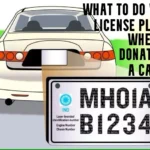In today’s world, where environmental concerns and philanthropic efforts are gaining momentum, many individuals are considering donating their vehicles to charity as a meaningful way to contribute. Not only does this act benefit charitable organizations, but it can also have potential tax advantages for the donors. However, before embarking on such a noble endeavor, it’s essential to understand the IRS’s perspective on donating vehicles to charity.
Understanding the Basics
What Does Donating Vehicles to Charity Entail?
When you donate a vehicle to a qualified charitable organization, you’re essentially giving them a valuable asset that they can either use for their operations or sell to generate funds for their initiatives. This act can support causes you believe in while also potentially offering you tax deductions.
What Types of Vehicles Can Be Donated?
Generally, a variety of vehicles can be donated, including cars, trucks, motorcycles, boats, and even airplanes. However, it’s crucial to ensure that the charity you’re donating to is equipped to handle the type of vehicle you’re giving.
IRS Guidelines on Vehicle Donations
How Does the IRS Evaluate Vehicle Donations?
The IRS has specific guidelines in place to regulate vehicle donations and their associated tax benefits. To claim a tax deduction for the donated vehicle, the donor must itemize deductions on their tax return.
What Determines the Tax Deduction Amount?
The value of your tax deduction depends on how the charity uses the donated vehicle. If the charity uses it for its operations, the donor can generally claim the fair market value of the vehicle. However, if the charity decides to sell the vehicle, your deduction is usually limited to the sales price.
When Should You Obtain a Written Acknowledgment?
For vehicle donations exceeding $500, the IRS requires the donor to obtain a written acknowledgment from the charity. This acknowledgment should include specific details about the donation, including a description of the vehicle and whether any goods or services were exchanged for the donation.
Maximizing Your Tax Benefits
What Steps Can You Take to Maximize Tax Benefits?
To ensure you receive the maximum tax benefits from your vehicle donation, it’s recommended to:
- Choose a Qualified Charity: Verify that the charity you’re donating to is eligible to receive tax-deductible contributions.
- Determine the Fair Market Value: If your deduction is based on the vehicle’s fair market value, it’s crucial to determine this value accurately.
- Keep Proper Documentation: Maintain thorough records of the donation and any related documents, including the written acknowledgment from the charity.
Are There Special Rules for High-Value Donations?
Yes, if the claimed value of your donated vehicle exceeds $5,000, you’ll need to obtain a written appraisal of the vehicle’s value from a qualified appraiser. The appraisal must be attached to your tax return.
| Topic | Summary |
|---|---|
| Donating Vehicles to Charity | Giving vehicles to charity supports causes and offers tax advantages. IRS has guidelines. |
| Types of Vehicles | Various vehicles like cars, boats can be donated. Verify charity’s ability to handle them. |
| IRS Guidelines | IRS regulates vehicle donations for tax deductions. Itemize deductions for tax benefits. Website Link For Guidelines. |
| Tax Deduction Amount | Deduction depends on charity use or sale of vehicle. Get written acknowledgment for $500+ donations. |
| Maximizing Tax Benefits | Choose qualified charity, determine value, maintain records for maximum deductions. |
| Special Rules for High-Value Donations | Appraisal needed for vehicle donations over $5,000. |
Conclusion
Donating a vehicle to charity can be a fulfilling way to contribute to causes you care about while potentially enjoying tax benefits. However, it’s vital to adhere to the IRS’s guidelines and requirements to ensure you receive the appropriate deductions. By understanding the IRS’s opinion on donating vehicles to charity, you can make informed decisions that align with your charitable and financial goals.
FAQs
Yes, but it’s crucial to confirm that the charity is eligible to receive tax-deductible contributions.
Generally, no, but some charities might have preferences or limitations.
You can refer to resources like the Kelley Blue Book or consult with a qualified appraiser.
Your tax deduction will typically be limited to the sales price the charity receives.
No, you must meet the IRS’s requirements and itemize deductions to claim the deduction.




